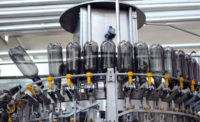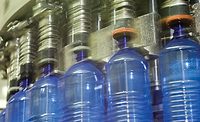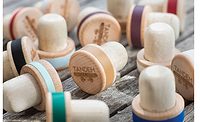In the PBS Kids program “Daniel Tiger’s Neighborhood,” Daniel Tiger sings, “Stop and Listen to Stay Safe.” In beverage warehouses, operations have a broad checklist to ensure safe beverage production, but today’s lubricant manufacturers are doing their part to take one worry off their minds: consumer safety.
“Keeping consumers safe is the No. 1 priority when it comes to lubricants being used by food, beverage and pharmaceutical processors,” says Ellie Girard, OEM marketing manager for Newark, N.J.-based Lubriplate Lubricants Co. “Food safety measures enacted by government agencies, like the Food Safety Modernization Act, impact the entire supply chain, which of course includes lubricants that are used in processing facilities. Many food and beverage processors are choosing to use a 100 percent NSF/H1 food machinery lubrication program, which means that all lubricants used in the plant are safe for incidental contact with whatever is being processed. If this type of program is utilized, a HACCP plan is not required for lubricants.”
Although still voluntary in the United States, many processors are requiring lubricants to be ISO 21469-certified, Girard adds.
“This certification not only reviews the toxicological make-up of each lubricant, but it also reviews the whole process of lubricant design, manufacturing, packaging and transport,” she says.
Bill Watson, food market manager at Klüber Lubrication NA LP, Londonderry, N.H., notes that product safety measures are contributing to the development of new lubricant solutions.
“This drives the development of new and more NSF H1 lubricants to cover all of the applications found in these facilities,” he says.
Watson adds that these specialized food-grade lubricants allow beverage operations to be fully compliant by using high quality, H1 lubricants.
Lubriplate’s Girard notes that it also is important to avoid lubricant misapplication. She suggests implementing color-coded systems to support this safety measure.
“A great way to do this is [by] tagging machinery and organizing lubrication rooms with a color-coded system,” Girard says. “Your lubricant supplier should schedule a complete survey of your plant to determine your exact lubricant requirements. Then, they should create custom, color-coded lubrication charts that provide quick and easy identification, as well as provide color-coded lubricant storage room signs and color-coded tags for individual machine components throughout your plant. All of these steps will help your plant run as efficiently as possible while maintaining strict safety measures.”
Beyond product safety, lubricants also are helping beverage operators further sustainability goals.
“Simply put, as an example, using higher-quality synthetic-based lubricants can reduce both energy consumption and reduce waste,” Klüber Lubrication’s Watson says.
Lubriplate’s Girard also notes that lubricant suppliers are ensuring that the products they produce support environmentally friendly operations.
“People want lubricants that will last longer, but perform better, without hurting the environment,” she says. “Technologies for these types of lubricants are advancing, and I believe this trend will continue. People are beginning to learn that synthetic lubricants will outperform traditional mineral oil-based lubricants in most applications. Environmentally friendly and eco-green lubricants have really made a splash in the lubricants market over the past few years as well.”
Klüber Lubrication’s Watson notes that standardization also is having an impact on the lubricants market. “We are finding that many of the large beverage corporations are standardizing on both lubricants and lubrication programs across sites, whereas in the past, individual sites would act independently,” he says.
Although suppliers are developing lubricants that support sustainability and product safety, they are being challenged by increased demand in the wake of today’s current supply chain.
“With the COVID-19 pandemic still with us and seems that it will be for quite a while, a big concern is just the availability of our product,” Girard says. “We have made the production of NSF/H1 lubricants a top priority as we know the demand for food and beverages will not subside. Everyone needs to eat food and everyone needs to drink beverages.”







